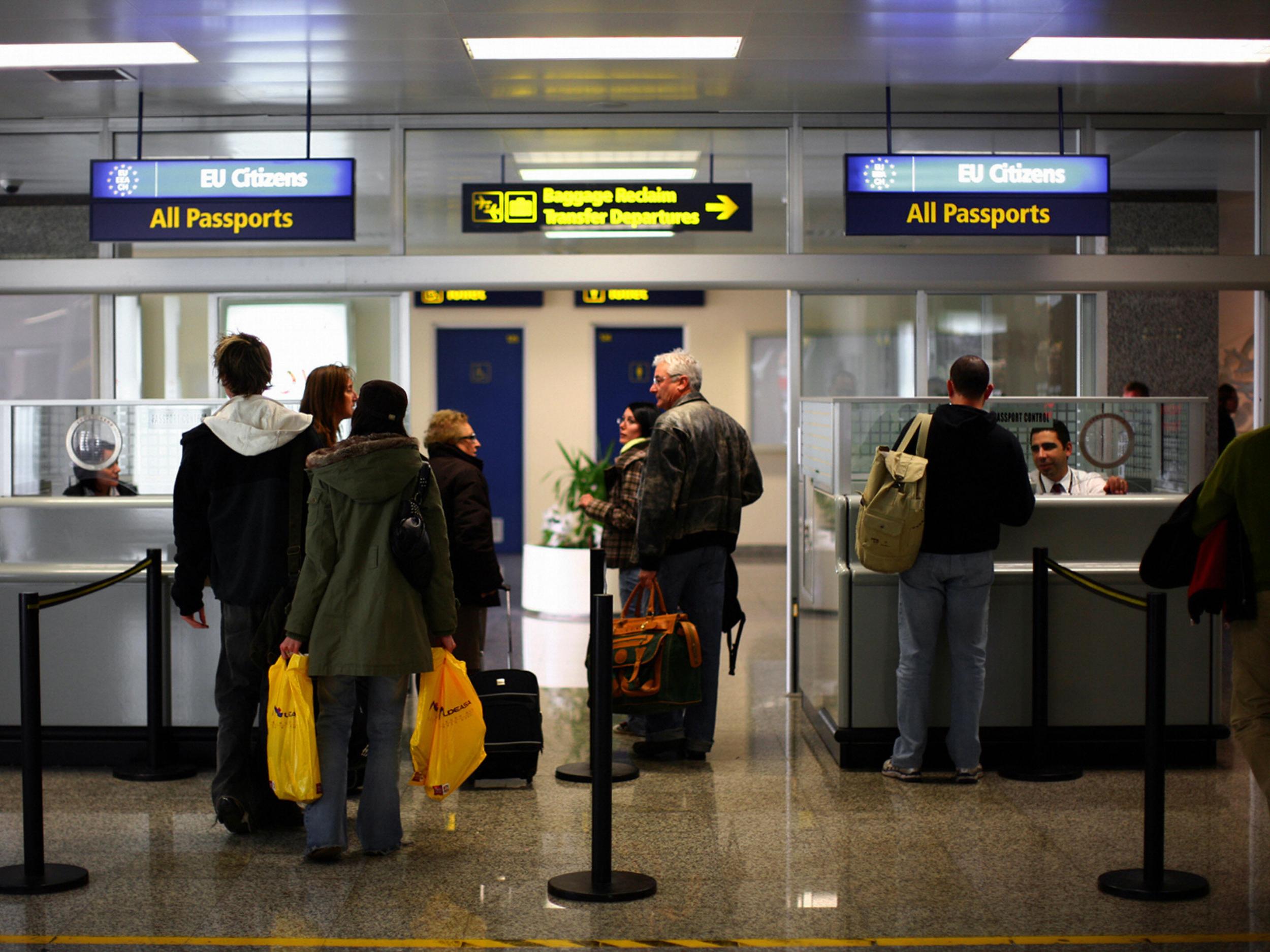Brexit: Britons could be charged to visit Europe after EU withdrawal
US-style scheme for visa free travel could come with a charge for online pre-screening

Your support helps us to tell the story
From reproductive rights to climate change to Big Tech, The Independent is on the ground when the story is developing. Whether it's investigating the financials of Elon Musk's pro-Trump PAC or producing our latest documentary, 'The A Word', which shines a light on the American women fighting for reproductive rights, we know how important it is to parse out the facts from the messaging.
At such a critical moment in US history, we need reporters on the ground. Your donation allows us to keep sending journalists to speak to both sides of the story.
The Independent is trusted by Americans across the entire political spectrum. And unlike many other quality news outlets, we choose not to lock Americans out of our reporting and analysis with paywalls. We believe quality journalism should be available to everyone, paid for by those who can afford it.
Your support makes all the difference.UK citizens could be charged to enter the EU if Article 50 is triggered.
As part of an effort to prevent terrorism, European ministers are to consider a plan to introduce a US-style visa waiver programme for the 26-country Schengen Zone. Visitors from countries participating in a Visa Waiver Programme would be required to apply online to be screened in advance of their trip.
The US Electronic System for Travel Authorisation (ESTA) charges prospective tourists and business travellers £10 for these background checks.
The plan to implement an EU version of ESTA was drafted in September, but the European Commission is set to discuss the proposal this week.
Sir Julian King, a British diplomat currently serving as European commissioner for the security union, is already backing the plan, which he said could play an important part in the war against international terrorism.
“We think this is going to be a valuable additional piece of the jigsaw because it will allow us to know more about the people who are planning to come to the EU in advance so that if necessary they raise questions about either security or in some cases migration,“ he said.
He added: ”We’ll be able to intervene even before they arrive in some cases.“
The idea has also been backed by France and Germany, following calls for bolstered security throughout Europe after a string of terror attacks on European soil, according to EU sources.
All countries in the Schengen Area have abolished passport checks at their mutual borders.
Although not a member of the zone, British nationals are able to travel freely within it after showing a valid passport upon entry.
But after Britain's exit from the bloc, UK citizens may be forced to apply to visit the zone and pay a fee.
Leave campaigners admitted such a scheme could be a possibility in the build-up to the EU referendum.
But the change is now close to becoming a reality as part of a wider package of counter-terrorism moves that are being tabled one year on from the Paris attacks.
“It’s that level of present, persistent, indiscriminate threat that led to 80-plus per cent of European citizens saying they want more action in this area,” said Mr King. “There are a number of elements at the heart of this task – tackling terrorism is one but not the only part of it. There’s work that needs to be done on cybercrime and attacks, and serious and organised crime. On terrorism there were a number of things already in hand.”
EU interior ministers, including the British home secretary, Amber Rudd, will consider the European visa waiver scheme alongside the refreshed counter-terrorism package this Friday at a regular meeting of justice and home affairs ministers.
When the plan to charge Britons to visit Europe was first disclosed in September, Ms Rudd said: “I don’t think it’s particularly desirable, but we don’t rule it out, because we have to be allowed a free hand to get the best negotiations.”
“My reaction to that is it’s a reminder that this is a two-way negotiation. The EU and the commissioners may be considering issues, alternatives. They will be considering their negotiations with us, just as we are with them. But I’m going to make sure that what we do get is in the best interests of the UK,” she said.
Join our commenting forum
Join thought-provoking conversations, follow other Independent readers and see their replies
Comments